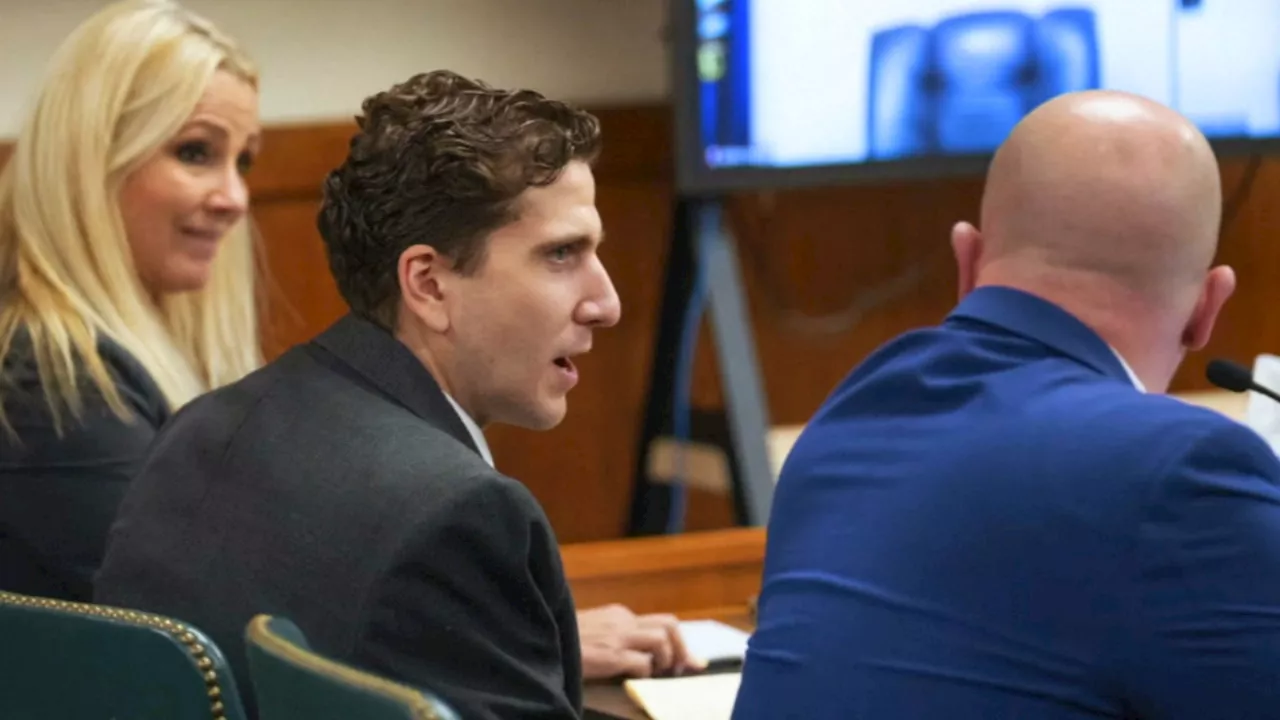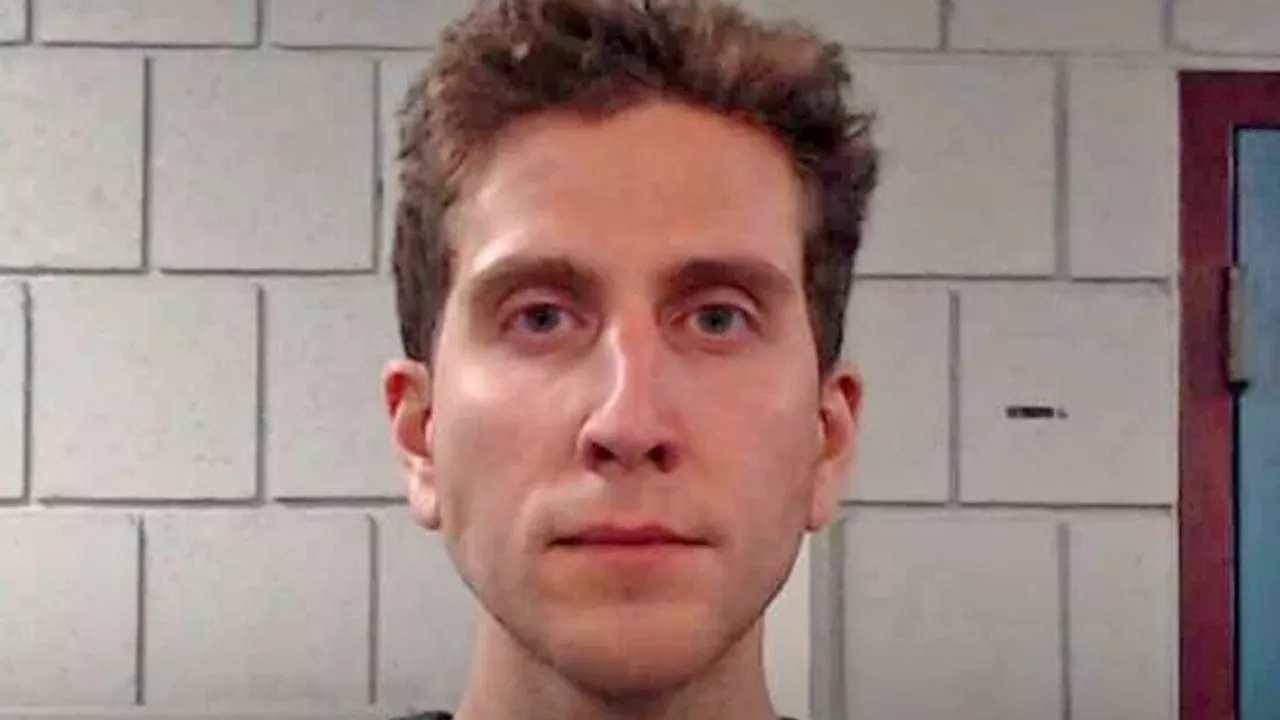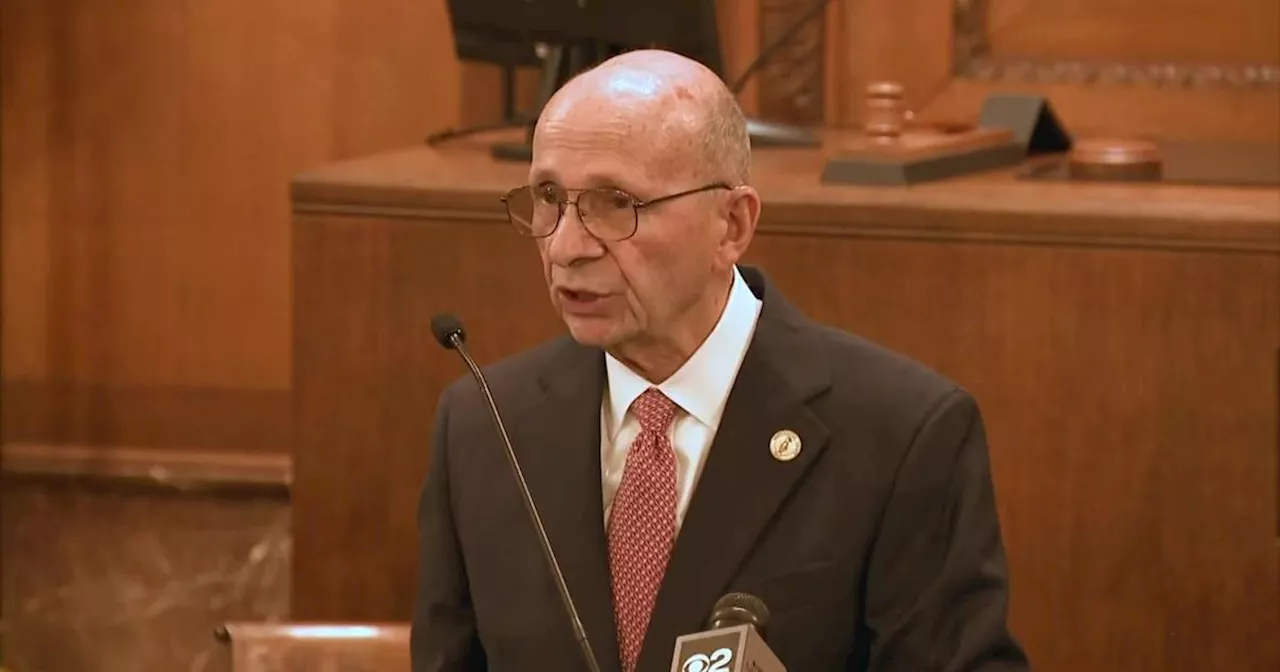Bryan Kohberger, the suspect in the Idaho student murders, filed a motion to unseal a briefing and hearing on investigative genetic genealogy, which his defense disputes. Judge Steven Hippler denied the motion, citing concerns about exposing the jury pool to potentially inadmissible evidence. The case is highly publicized and was moved from Latah County to Ada County due to concerns about a fair trial in the smaller county.
Judge Steven Hippler denied Bryan Kohberger 's motion to unseal a briefing and hearing on investigative genetic genealogy on Wednesday. The defense disputes the use of this technique in the Idaho student murders case. 'As the State points out, there is no dispute this is a high-profile case, particularly in Idaho,' Judge Hippler wrote in his order. 'It was transferred to Ada County from Latah County on Defendant's motion to change venue.
Defendant argued in that motion that the small size of the jury and the extensive, inflammatory media coverage prevented him from receiving a fair trial in Latah County. While Ada County has a larger jury pool to pull from than Latah County, the State is concerned that the risk of exposing that jury pool to evidence - particularly evidence that may not be deemed admissible at trial – remains significant.'This ruling was one of 12 suppression motions filed by Kohberger's defense scheduled to be heard Thursday. It marks the first time Kohberger has been back in court in over two months. During a previous hearing, his defense team requested sanctions against prosecutors for 'inadequate disclosures' during the discovery process. Kohberger did not appear in person at a closed-door hearing earlier this week. His defense team is seeking to exclude expert witnesses from the case.Kohberger's legal team is challenging the legality of search warrants issued in the case, arguing that probable cause was primarily established through the use of investigative genetic genealogy (IGG). They believe this violates Kohberger's Fourth Amendment rights. IGG allows police to build a suspect's family tree by comparing crime scene DNA to public databases of voluntarily submitted DNA. Kohberger's defense also contends that the search warrants were overly broad, especially during searches of electronic devices like his phone, laptop, and online accounts.The hearing will also address a motion to compel discovery, where Kohberger's defense claims it hasn't received all reports, research, and data that prosecution expert witnesses will rely on during trial. The court has set aside Friday if all motions are not covered by the close of business Thursday. Kohberger faces four charges of first-degree murder and felony burglary for the stabbing deaths of University of Idaho students Madison Mogen, Kaylee Goncalves, Xana Kernodle, and Ethan Chapin. The four students were killed in a home invasion attack on November 13, 2022.Prosecutors allege Kohberger entered the home while some students were asleep and killed them with a large knife. Two housemates survived, one who told police she saw a masked man with 'bushy eyebrows' leave the home after hearing sounds of a struggle. Police found a Ka-Bar knife sheath under Mogen's body containing Kohberger's DNA. Kohberger drove a white Hyundai Elantra, the same make and model investigators identified as the suspect's vehicle, and allegedly turned off his phone before and after the crime scene, according to an affidavit. Police claim he stalked the victims' home a dozen times before the murders and drove by once more hours afterward.At the time of the murders, Kohberger was pursuing a Ph.D. in criminology at Washington State University, about 10 miles across the state line. A judge entered not guilty pleas on Kohberger's behalf at his arraignment in May 2023. Kohberger is being held without bail and could face the death penalty if convicted
Bryan Kohberger Idaho Murders Investigative Genetic Genealogy Search Warrants Fourth Amendment Court Hearing
United States Latest News, United States Headlines
Similar News:You can also read news stories similar to this one that we have collected from other news sources.
 Ada County, Idaho prepares for another Bryan Kohberger's high-profile trialThe Ada County Courthouse in Boise, Idaho is getting ready for all eyes to be back on them as the trial for Bryan Kohberger is scheduled to start in August.
Ada County, Idaho prepares for another Bryan Kohberger's high-profile trialThe Ada County Courthouse in Boise, Idaho is getting ready for all eyes to be back on them as the trial for Bryan Kohberger is scheduled to start in August.
Read more »
 Judge to Rule on DNA Evidence Linking Kohberger to Murder SceneA judge is poised to decide on the admissibility of DNA evidence that prosecutors say connects Bryan Kohberger to the Idaho murders. Kohberger's defense team is challenging the evidence, specifically focusing on the use of 'investigative genetic genealogy' which helped identify him as a suspect. Prosecutors claim Kohberger's DNA was found on a knife sheath at the crime scene.
Judge to Rule on DNA Evidence Linking Kohberger to Murder SceneA judge is poised to decide on the admissibility of DNA evidence that prosecutors say connects Bryan Kohberger to the Idaho murders. Kohberger's defense team is challenging the evidence, specifically focusing on the use of 'investigative genetic genealogy' which helped identify him as a suspect. Prosecutors claim Kohberger's DNA was found on a knife sheath at the crime scene.
Read more »
 Accused Univ. of Idaho Killer Bryan Kohberger Excused From Hearing by JudgeBryan Kohberger's not in court for his first hearing of 2025 ... 'cause the judge decided to excuse him for Wednesday's proceedings.
Accused Univ. of Idaho Killer Bryan Kohberger Excused From Hearing by JudgeBryan Kohberger's not in court for his first hearing of 2025 ... 'cause the judge decided to excuse him for Wednesday's proceedings.
Read more »
 Idaho murders: Judge in Bryan Kohberger case hears defense motionIdaho murders suspect Bryan Kohberger is back in court for pre-trial hearings ahead of his summer murder trial for the brutal stabbing deaths of four University of Idaho students.
Idaho murders: Judge in Bryan Kohberger case hears defense motionIdaho murders suspect Bryan Kohberger is back in court for pre-trial hearings ahead of his summer murder trial for the brutal stabbing deaths of four University of Idaho students.
Read more »
 Tarrant County Surpasses Dallas in Number of Inmates on Death RowA review of state prison data and court records reveals that Tarrant County, Texas, has overtaken Dallas County in the number of individuals awaiting execution. This year alone, six death sentences were handed down in Texas, four of which originated from North Texas counties, with three coming from Tarrant County. The review identified at least 14 individuals from Tarrant County currently on death row, surpassing Dallas County's 13. Harris County remains the state's leading county for death row inmates, with over 60 individuals awaiting execution.
Tarrant County Surpasses Dallas in Number of Inmates on Death RowA review of state prison data and court records reveals that Tarrant County, Texas, has overtaken Dallas County in the number of individuals awaiting execution. This year alone, six death sentences were handed down in Texas, four of which originated from North Texas counties, with three coming from Tarrant County. The review identified at least 14 individuals from Tarrant County currently on death row, surpassing Dallas County's 13. Harris County remains the state's leading county for death row inmates, with over 60 individuals awaiting execution.
Read more »
 Westchester County to Have Three County Executives in Six DaysWestchester County, NY, is experiencing an unusual transition of power, with three different individuals serving as County Executive in a span of six days. This follows George Latimer's resignation to join Congress.
Westchester County to Have Three County Executives in Six DaysWestchester County, NY, is experiencing an unusual transition of power, with three different individuals serving as County Executive in a span of six days. This follows George Latimer's resignation to join Congress.
Read more »
